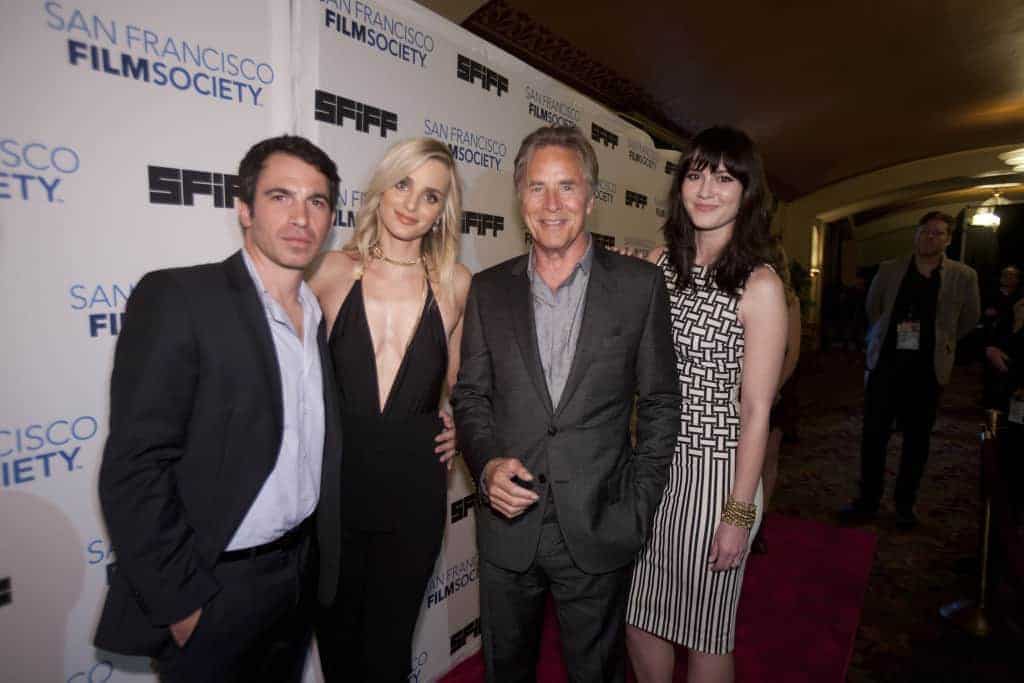Chris Messina’s mediocre directorial debut, Alex of Venice, boasts strong performances but is a low point in an otherwise excellent year at SFIFF.

Well, SFIFF has come to a close after a great last couple of weeks full of some wonderful films from around the world. From the fantastic, biting satire, Dear White People, which also took home the SFIFF Audience Award, to the gorgeous Icelandic landscapes against which the black comedy Of Horses of Men was set, it was a fairly strong slate. The two weakest films I saw at the festival were, somewhat ironically, two of its biggest star-studded affairs, that were both, perhaps less surprisingly, helmed by first-time directors: The Opening Night Film,The Two Faces of January, by Hossein Amini, and the Closing Night Film, Alex of Venice, by Chris Messina.
As an actor, Chris Messina has worked with many of the film industry’s best directors, from Sam Mendes (Away We Go) to Woody Allen (Vicky Cristina Barcelona), often playing the stalwart husband. Having absorbed what he liked about working with certain directors, and outlawed all the habits or modes of working that he disliked, he’s clearly found a way to work well with actors.
The strongest part of Alex of Venice is the performances, particularly from Mary Elizabeth Winstead (Scott Pilgrim vs the World) as the title character whose life gets thrown through a loop when her husband (Chris Messina) decides to take some time away. In the Q&A after the film, Messina explained that, most of the time, they shot with two Alexa cameras so that he could allow the performances to unfold without interruption; he always got pulled out of the moment, as an actor, when making other films where there were many pauses to adjust lighting and make-up.
Unfortunately, he’s less sure-footed when it comes to figuring out where to put the camera. Many scenes involve a pointlessly mobile camera, scanning up or down or across the room for no apparent reason, except perhaps to give an otherwise dead scene the semblance of life. Some of the scenes that should be the most tense in the film lose much of their oomph, like when Messina’s character tells Alex he’s leaving her, because there are no shots of both actors in the same frame, only individual close-ups. One nice touch is that Messina shoots almost all of the scenes involving Alex’s son at his eye level, keeping the camera low, which helps us develop a strong intimacy with the boy; unfortunately, the screenplay doesn’t back this up with any insight into what he’s going through.
And the film’s biggest weakness is its plot. Faced with suddenly becoming a single parent overnight, and having to care for her aging, helpless father (Don Johnson), the career-woman, Alex, remains largely unfazed: the practical issues amount to no more than showing up late to work once or picking up her son late from school once. When her father calls in her irresponsible sister (Katie Nehra, who also co-wrote the screenplay) to help out, this frees Alex up to go through a second adolescence. Alex seems wholly uninterested in her son and how his father’s departure is affecting him. Instead, she spends her time trying to figure out how to get laid, working on a case, and proving herself to be ever the self-absorbed emotionally stunted person.
There are nice, light touches as she goes through this, but the overwhelming thesis of the film, that people change and not together, would be more convincing if we saw any evidence of how and why Alex’s marriage wasn’t working. Or if there was any gesture toward how it may have functioned well in the past. Generally, when we talk about people changing, we don’t mean they suddenly become completely self-involved, which seems to be the only obvious thing that’s happened to Alex. This makes it tough to root for either the couple’s split or reunion, or to care much either way once it’s decided.
Messina may be an actor’s director – and these actors are all a pleasure to watch, especially when Messina lets the camera sit on them while they go through a range of emotions – but he still has a long way to go before that translates into being able to produce a visually satisfying piece of work. And one that doesn’t rely so heavily on background music or score to set the tone of an otherwise clunky film.

